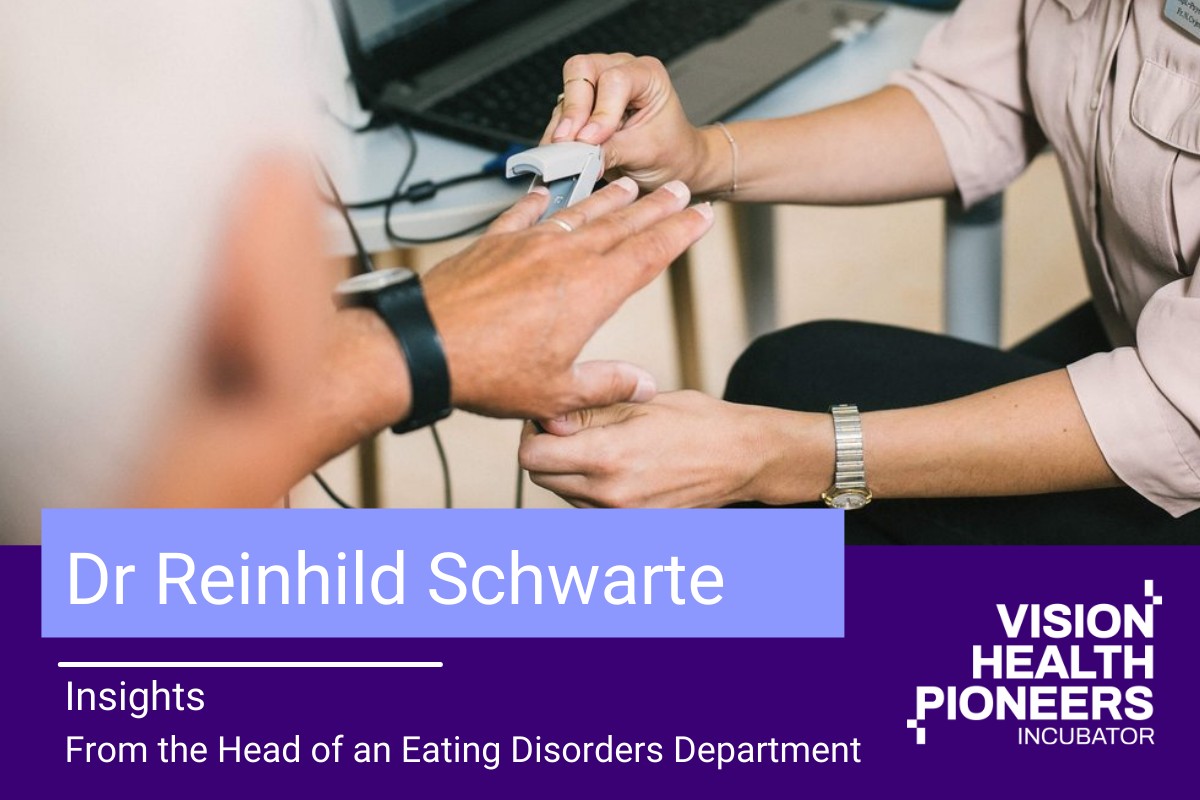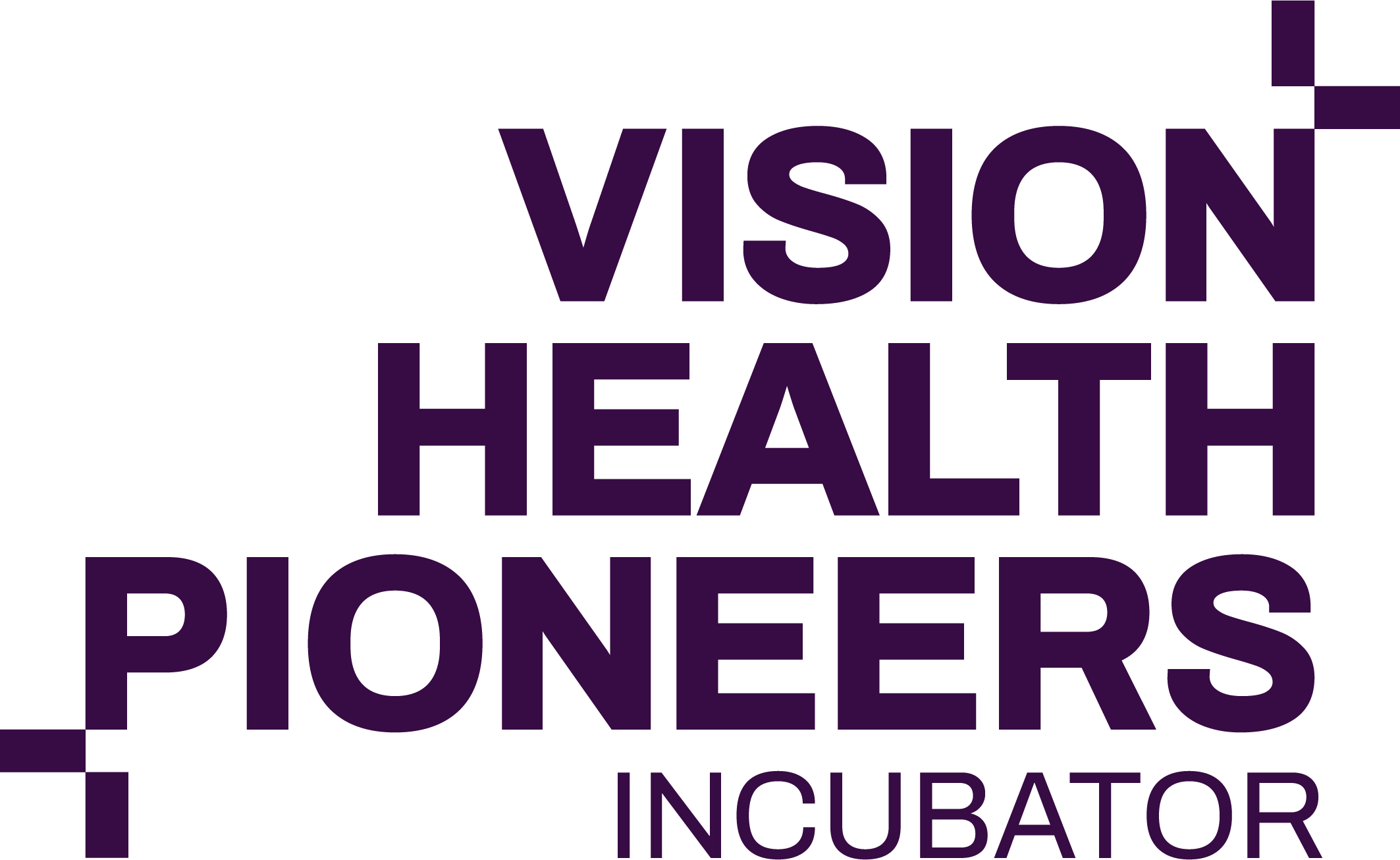
25 Feb The need for more courage and visionary spirit
We were delighted to recently speak with Dr Reinhild Schwarte, Head of the Eating Disorders Department at Oberberg Specialist Clinic Konraderhof.
In this fascinating interview we are given an insight into the numerous areas Dr Schwarte operates in and explore the current situation with eating disorder treatment for both patients and their close ones. We also look at future challenges and why innovation may be required. We thank Dr Schwarte and the Oberberg Specialist Clinic Konraderhof for their time.
1. Please briefly explain your role and your company.
I head the Eating Disorders department at the Oberberg Specialist Clinic Konraderhof. The clinic for child and adolescent psychiatry, psychotherapy and psychosomatics at the Oberberg private clinics has three wards with a total of thirty-nine treatment places and ten adjoining day clinic places. The three wards are divided into a children’s ward and two youth wards. In the clinic, the entire spectrum of child and adolescent psychiatric disorders is treated in children and adolescents between the ages of five and twenty-one, provided that this can also be done without a protected person, accommodation is possible. The treatment focuses on eating disorders, obsessive-compulsive disorders, emotion regulation disorders, anxiety disorders, depressive episodes, school absenteeism and hyperkinetic disorders. The percentage of patients with eating disorders is 20-40%. A follow-up outpatient clinic with integrated home treatment as a treatment option is new.
2. How did you come to specialise in this field?
I have wanted to work as a psychotherapist with young people since I was 14. At that time, a psychologist at school really impressed me and I found the job exciting. In 2004 I was lucky enough to get a job with Professor Herpertz-Dahlmann in child and adolescent psychiatry at the University Hospital in Aachen. In the department there, the area of eating disorders is one of the focal points of treatment and research. At that time, a multi-centre research project for the day-patient treatment of anorexia nervosa was being set up. As a young therapeutic assistant, I was offered the management of the project and accepted it. At the time, I was particularly impressed by the prospect of treatment of the serious illness that was closer to everyday life. During the course of the project, I was particularly impressed by how the treatment led to a holistic and comprehensive change for the patients: With an improvement in their nutritional situation, it was possible to get to know the patients better and better.This aspect is certainly the one that tied me to the special area.
3. One of our startups called aidable focuses on follow-up therapy by supporting the family of the person suffering from an eating disorder. They have personal experiences and therefore believe that there is a lack of support in this area. What do you think?
I think that every affected family would see it in one way or another. Our healthcare system is extremely focused on the individual patient, this also applies to children and young people. However, when it comes to mental illness, it is for two reasons important to involve the environment in the treatment. On the one hand, the environment often suffers massively: mental illnesses represent a massive stress factor on the environment around the person, the topics are often interwoven with shame and a feeling of guilt and there are too few social support options in our functionally oriented society. This often leads to subsequent problems that could have been prevented. On the other hand, it is often the case that a helpful and emotionally very committed environment can contribute to the maintenance of illnesses through insecurity or high emotionality.
4. Therapeutic follow-up can reduce recurrence rates – as much as 11% in some cases. How important are the people around the sick person for the recovery process?
In the case of eating disorders in particular, there is actually little leeway in this regard, as numerous studies have shown the relevance of treating the environment /family as well.
The environment can also have several relevant tasks with regard to the recidivism rate. For example, as the first instance of detecting a relapse, it can contribute to early intervention. Secondly, it is helpful to enable appropriate follow-up care in the healthcare system. Third, by making changes of its own, it can help create conditions conducive to recovery. We know that aspects such as motivation, eating training, social support etc. can reduce the recidivism rate. These aspects are of course also linked to the living conditions and the environment/ family.
5. What is your estimate of the burden and possibly psychiatric symptoms for key family members of patients with eating disorders?
Experience has shown that the burden on the relatives of patients is very high. The food and the medical condition of patients are especially two very existentially threatening aspects that understandably have a massive impact on the environment. Concern, shame, feelings of guilt arise, often power struggles as well, which come in the ambivalence of the illness are co-founded. A great deal of responsibility is still ascribed to the environment in the genesis of eating disorders. In my doctoral thesis I was able to prove that the parents of anorexic, adolescent patients are often characterized by a high degree of depression and that the communication of the affected families is characterized by a high degree of critical communication and emotional involvement. Both act as potentially maintaining conditions for the symptomatology. It can be clearly shown that more severe eating disorder symptoms are associated with greater depression and greater emotional involvement. This applies in particular to younger patients.
6. How do you see the care of people with eating disorders in general in Germany at the moment? What are the barriers, successful care methods/models, etc.?
As with many other mental illnesses, the care of those affected is often not sufficient and associated with long waiting times. In the case of eating disorders, this is particularly fatal because waiting times can go hand in hand with deterioration or even real life threats. In addition, the importance of early intervention for a good prognosis is well established. For those affected, the access options to offers of help are extremely confusing. You are extremely dependent on finding good advisors. Outpatient and inpatient therapy are established in Germany as care structures, and day-patient models are being added more and more. Innovative models such as home treatment, in which relatives can be involved much better in the treatment, which can be close to everyday life and inexpensive, have so far only been partially covered by health insurance and are associated with great organizational effort for the treating institutions. The bureaucratic access routes here are often very complicated. Better, more flexible patient care would certainly be possible if the therapists were allowed more personal responsibility with secure financing.
7. Innovation and novel solutions are in demand in many areas of healthcare and have become highly relevant for comprehensive treatment, do you also see this in your specialty?
The influences on the psychological wellbeing of the population are changing rapidly. Digitization, climate crisis, pandemic are three main factors that are immediately obvious to everyone, that everyone experiences and that are also easily verifiable in studies. It is actually only logical that these changes also require innovative new offers on the treatment side. So the challenges for the area of mental illnesses is still significantly greater than in other areas, but it is precisely here in particular that old structures are often retained.
The challenge in the implementation is often the recognition and financing by the health insurance companies. In Germany, we attach great importance to generally accessible health care, which also works well in most areas and ensures treatment. The supply systems often function in a very bureaucratic manner and are not very willing to change. I would wish for much more courage and visionary spirit here, as well as cooperation with universities to carry out pilot studies and the like.



